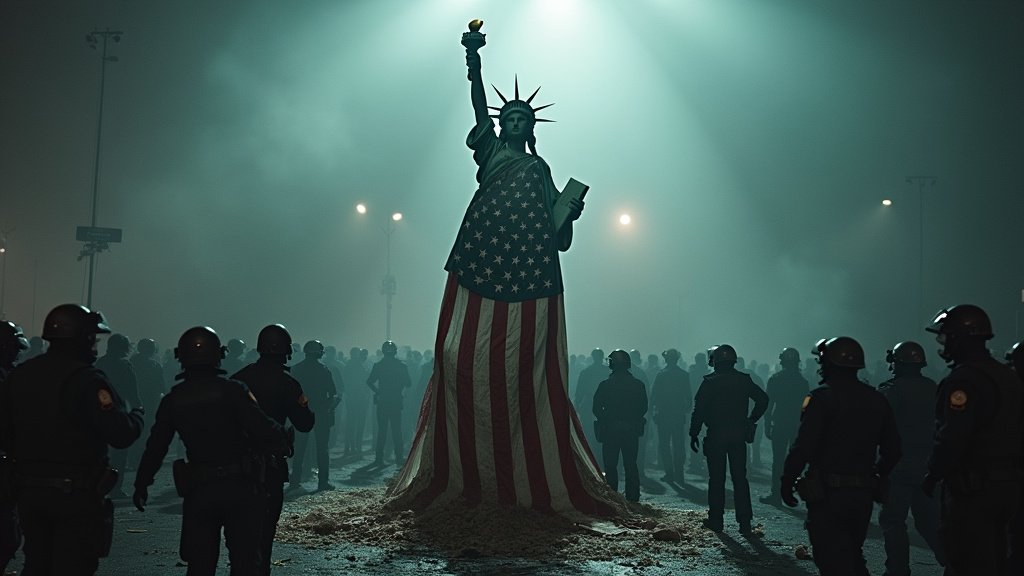VATICAN CITY – In a moment of profound historical significance for the Roman Catholic Church and a landmark development for American society, Cardinal Robert Francis Prevost, an American, was elected as the new pope on May 8, 2025. This marks the first time a citizen of the United States has ascended to the papacy, a development that sent ripples of reaction across the globe and was a leading story in international news broadcasts, including reports featured in the PBS News Hour full episode on this date.
The Conclave’s Decision
The election followed a conclave of cardinals held over two days within the hallowed walls of the Sistine Chapel. Speculation had mounted as the cardinals deliberated behind closed doors. The traditional signs announcing the decision were closely watched by expectant crowds gathered in St. Peter’s Square and billions around the world via media. On the afternoon of May 8, 2025, the definitive puff of white smoke emerged from the Sistine Chapel chimney, a clear signal that the required two-thirds majority vote had been reached. Moments later, the resonant pealing of bells from St. Peter’s Basilica in Rome echoed across the city and beyond, confirming the election.
Introduction as Pope Leo XIV
The identity of the newly elected pontiff remained unknown to the public until the traditional announcement from the central balcony of St. Peter’s Basilica. Standing before a vast congregation filling St. Peter’s Square, Cardinal Jean-Louis Tauran, the protodeacon, delivered the Latin pronouncement, “Habemus Papam” (“We have a Pope”), and revealed the name: Cardinal Robert Francis Prevost. He also announced the name the new pope had chosen for his pontificate: Pope Leo XIV. This signifies he is the 267th leader of the Roman Catholic Church, taking a name rich in papal history.
First Words and Message of Peace
Stepping onto the balcony himself, dressed in white papal vestments, Pope Leo XIV offered his first public address. The moment was met with thunderous applause and emotional cheers from the faithful gathered below. His very first words, delivered with gravitas, were a simple yet powerful salutation: “Peace be with all of you.” This initial utterance immediately set a tone for his burgeoning pontificate. He continued to speak of the vital need for peace in a fractured world and emphasized his commitment to building bridges, themes that resonate globally and within the diverse communities of the Church.
Challenges Facing the Church
The election of a new pope occurs at a time when the Roman Catholic Church faces significant and complex challenges. Among the most pressing issues highlighted in reports is the declining number of clergy, a trend particularly pronounced in the Global North. This demographic shift poses considerable questions about the future structure and ministry of the Church in many established regions. Furthermore, there is widespread concern regarding the disengagement of young people from organized religion, presenting a long-term challenge for the transmission of faith and tradition to future generations.
A Prophetic Voice for the Modern Era
In light of these challenges and the global landscape, the role of the new pope is seen as crucial. The report specifically underscored the expectation that Pope Leo XIV will serve as a prophetic voice. This calls for leadership that not only guides the faithful but also speaks truth to power and addresses the pressing moral and ethical issues of the day. The areas identified for this prophetic engagement are broad and reflect contemporary global concerns: advocating for peace, promoting justice, standing with the disenfranchised, and championing environmental protection. These priorities suggest a papacy potentially focused on social action and global advocacy.
The Significance of an American Pope
The election of the first American pope carries unique significance. The United States holds one of the largest Catholic populations globally, and an American pontiff could potentially reshape the relationship between the Vatican and the influential American Church, as well as having implications for international relations. While the specific impact of Pope Leo XIV’s American background on his policies and priorities remains to be seen, his election is undeniably a historic milestone, closing a long chapter where the papacy was exclusively held by Europeans and opening a new one potentially influenced by the perspectives and experiences of the Americas.
As Pope Leo XIV begins his ministry as the 267th successor to Saint Peter, the world watches to see how he will navigate the complexities facing the Roman Catholic Church and how his leadership will embody the themes of peace and bridge-building he articulated in his very first moments as pontiff, fulfilling the role of a prophetic voice for justice and the common good.










